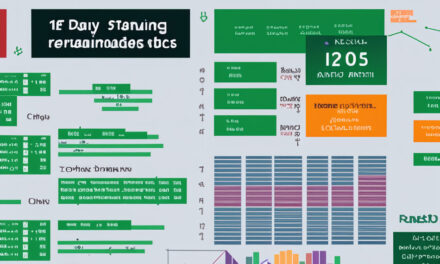Investing in financial markets can be a lucrative way to grow your wealth. Two popular investment opportunities are Forex and the stock market. Both offer potential rewards, but they come with their own set of risks and considerations. In this article, we will compare and contrast the two, assessing their risk and reward, exploring their advantages and disadvantages, and discussing what to consider when choosing between Forex and the stock market.
Comparing Investment Opportunities in Forex and the Stock Market
Forex, also known as foreign exchange, involves trading currencies. The stock market, on the other hand, allows investors to buy and sell shares of publicly traded companies. Both markets offer opportunities for investors to make profits, but they operate differently.
In the stock market, investors buy shares of companies in the hope that their value will increase over time. They can earn profits through capital appreciation and dividends. Forex, on the other hand, involves trading currency pairs. Investors speculate on the direction of currency exchange rates. They aim to profit from fluctuations in the currency market.
Each market has its own unique characteristics and requires different strategies. It’s important to understand these differences before deciding where to invest your money.
Assessing Risk and Reward in Forex and the Stock Market
Both Forex and the stock market come with risks. In the stock market, risks can include market volatility, company-specific risks, and general economic conditions. Share prices can be influenced by various factors, such as company earnings, new product launches, and global events.
In Forex, risks can include currency volatility, geopolitical events, and economic indicators. Exchange rates can fluctuate rapidly, and unexpected events can have a significant impact on currency values.
When it comes to reward, both markets offer the potential for substantial gains. In the stock market, investors can benefit from capital appreciation as the value of their shares increases. Dividends can also provide a regular income stream. In Forex, investors can profit from currency movements by buying low and selling high.
It’s important to note that both markets also come with the risk of financial loss. Investors should carefully assess their risk tolerance and investment objectives before entering either market.
Exploring the Advantages and Disadvantages of Forex and the Stock Market
Forex and the stock market each have their own advantages and disadvantages. In the stock market, one of the advantages is the opportunity to invest in well-established companies with a track record of success. Investors can also benefit from diversification by investing in different sectors or industries.
However, the stock market can be influenced by factors beyond an investor’s control, such as overall market conditions and economic trends. Additionally, individual stock prices can be volatile, making it important to conduct thorough research before making investment decisions.
In Forex, one advantage is the ability to trade 24 hours a day, five days a week. The Forex market is highly liquid and can offer rapid execution of trades. Investors can also benefit from leverage, which allows them to control larger positions with a smaller amount of capital.
However, Forex trading requires a deep understanding of currency markets and economic factors that can impact exchange rates. The market can be highly volatile, leading to potential losses if proper risk management is not in place.
Both Forex and the stock market have their advantages and disadvantages, and it’s important for investors to carefully consider these factors before deciding where to invest their money.
What to Consider When Choosing Between Forex and the Stock Market
Choosing between Forex and the stock market requires careful consideration of various factors. One important factor is your investment goals. Are you looking for long-term growth or short-term profits? The stock market may be more suitable for long-term investors, while Forex trading can provide opportunities for short-term gains.
Another consideration is your risk tolerance. The stock market can be volatile, but with careful research and diversification, investors can manage risk. Forex trading, on the other hand, can involve higher levels of volatility and risk. It’s important to assess your risk tolerance and invest accordingly.
Your level of knowledge and expertise is also crucial. Forex trading requires a deep understanding of currency markets and economic factors that can impact exchange rates. If you have a strong understanding of these factors, Forex trading may be suitable for you. However, if you are new to investing, the stock market may be a better starting point.
Ultimately, the decision between Forex and the stock market depends on your individual circumstances and investment goals. It’s important to do thorough research, seek advice from financial professionals, and carefully consider your own risk tolerance and knowledge level before making a decision.
The Pros and Cons of Investing in Forex and the Stock Market
Investing in Forex and the stock market has its pros and cons. Let’s explore them:
Pros of Investing in Forex:
- High liquidity and flexibility
- Potential for short-term profits
- The ability to trade 24 hours a day, five days a week
Cons of Investing in Forex:
- Higher levels of volatility and risk
- Requires a deep understanding of currency markets and economic factors
- Potential for significant financial loss if proper risk management is not in place
Pros of Investing in the Stock Market:
- Opportunity to invest in well-established companies
- Potential for long-term growth and dividends
- Ability to diversify investments
Cons of Investing in the Stock Market:
- Influence of market conditions and economic trends
- Potential for individual stock price volatility
- Requires thorough research and analysis before making investment decisions
Trading Strategies for Forex and the Stock Market
Successful trading in Forex and the stock market requires the use of effective strategies. Here are some commonly used strategies:
Forex Trading Strategies:
- Technical Analysis: Using price charts and indicators to predict future currency movements.
- Fundamental Analysis: Analyzing economic factors and news events to make trading decisions.
- Trend Following: Identifying and following trends in currency markets.
- Range Trading: Trading within defined price ranges.
Stock Market Trading Strategies:
- Value Investing: Identifying undervalued stocks and investing for long-term growth.
- Momentum Trading: Trading stocks based on short-term price movements.
- Growth Investing: Investing in companies with high growth potential.
- Dividend Investing: Investing in companies with a history of regular dividend payments.
Comparing Volatility in Forex and the Stock Market
Volatility refers to the degree of price fluctuations in a market. Both Forex and the stock market can experience periods of high volatility. However, the nature of volatility differs between the two.
In Forex, volatility is primarily driven by economic indicators, geopolitical events, and central bank decisions. Major news releases can cause significant price movements in currency pairs. Traders in Forex need to stay updated with economic calendars and news events that can impact exchange rates.
In the stock market, volatility can be influenced by company earnings reports, economic conditions, and overall market sentiment. Individual stocks can experience price swings based on news related to the company or industry. Traders and investors need to analyze company-specific and market-wide factors to make informed decisions.
Both markets provide opportunities for traders to profit from volatility. However, it’s important to be aware of the different factors that drive volatility in each market and adjust trading strategies accordingly.
Leveraging Forex and the Stock Market for Maximum Profit
Both Forex and the stock market offer opportunities to leverage your investments for maximum profit. Leverage allows traders to control larger positions with a smaller amount of capital. However, it’s important to use leverage responsibly and understand the associated risks.
In Forex, leverage is commonly offered by brokers. It allows traders to control larger positions in the currency market. For example, a leverage ratio of 1:100 means that for every $1 of capital, traders can control $100 worth of currency. While leverage can amplify profits, it can also lead to significant losses.
In the stock market, leverage can be used through margin accounts. Margin accounts allow investors to borrow funds to buy shares. However, margin trading comes with the risk of amplifying losses if the market moves against your position.
When using leverage in Forex or the stock market, it’s important to have a solid risk management strategy in place. Traders should never risk more than they can afford to lose and should use stop-loss orders to limit potential losses.
How to Make the Most of Forex and the Stock Market
To make the most of Forex and the stock market, it’s essential to approach investing with a disciplined and informed mindset. Here are some tips:
Educate Yourself:
Investing in Forex and the stock market requires knowledge and understanding. Take the time to learn about the markets, trading strategies, and risk management techniques. Stay updated with financial news and market trends to make informed decisions.
Set Clear Goals:
Determine your investment goals and develop a plan to achieve them. Are you looking for short-term profits or long-term growth? Set realistic expectations and align your strategy accordingly.
Diversify Your Portfolio:
Spread your investments across different asset classes, sectors, and regions. Diversification helps spread risk and can maximize potential returns.
Manage Risk:
Implement proper risk management techniques, such as using stop-loss orders and establishing risk/reward ratios. Never invest more than you can afford to lose.
Stay Disciplined:
Stick to your investment plan and avoid making impulsive decisions based on short-term market movements. Emotions can cloud judgment, leading to poor investment decisions.
The Basics of Investing in Forex and the Stock Market
For beginners, it’s important to understand the basics of investing in Forex and the stock market. Here are some key points to consider:
Forex Basics:
- Understand currency pairs and exchange rates.
- Learn how to read price charts and use technical indicators.
- Stay updated with economic news and events that can impact currencies.
- Start with a demo account to practice trading before risking real money.
Stock Market Basics:
- Learn about different types of stocks, such as common stock and preferred stock.
- Research companies and analyze their financial statements.
- Understand different order types, such as market orders and limit orders.
- Consider starting with a diversified portfolio of low-cost index funds or exchange-traded funds (ETFs).
Conclusion
When deciding between Forex and the stock market, it’s important to consider your investment goals, risk tolerance, and knowledge level. Both markets offer opportunities for financial growth, but they come with their own set of risks and considerations. By understanding the differences and applying sound investment strategies, you can make the most of Forex and the stock market and work towards achieving your financial goals.






